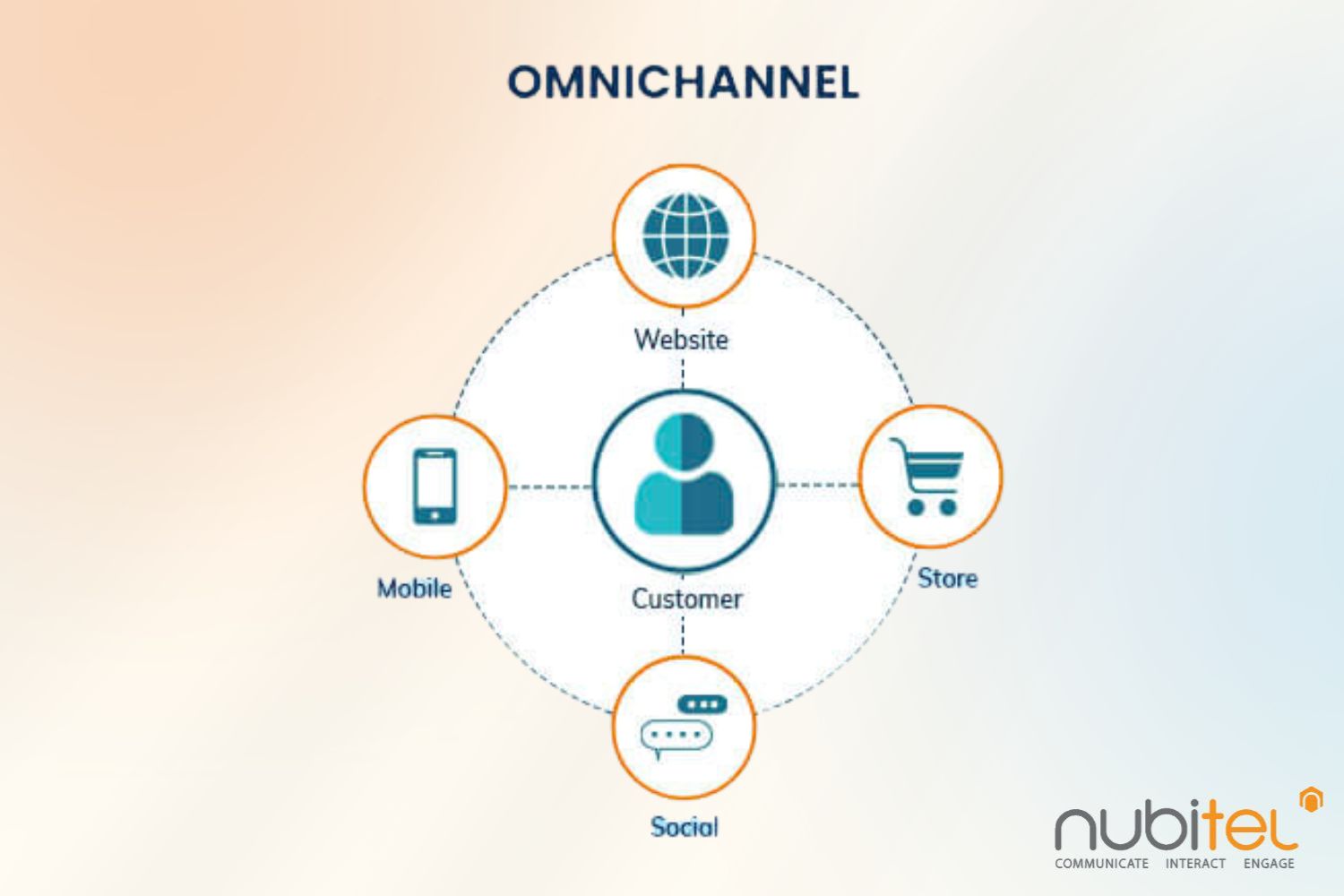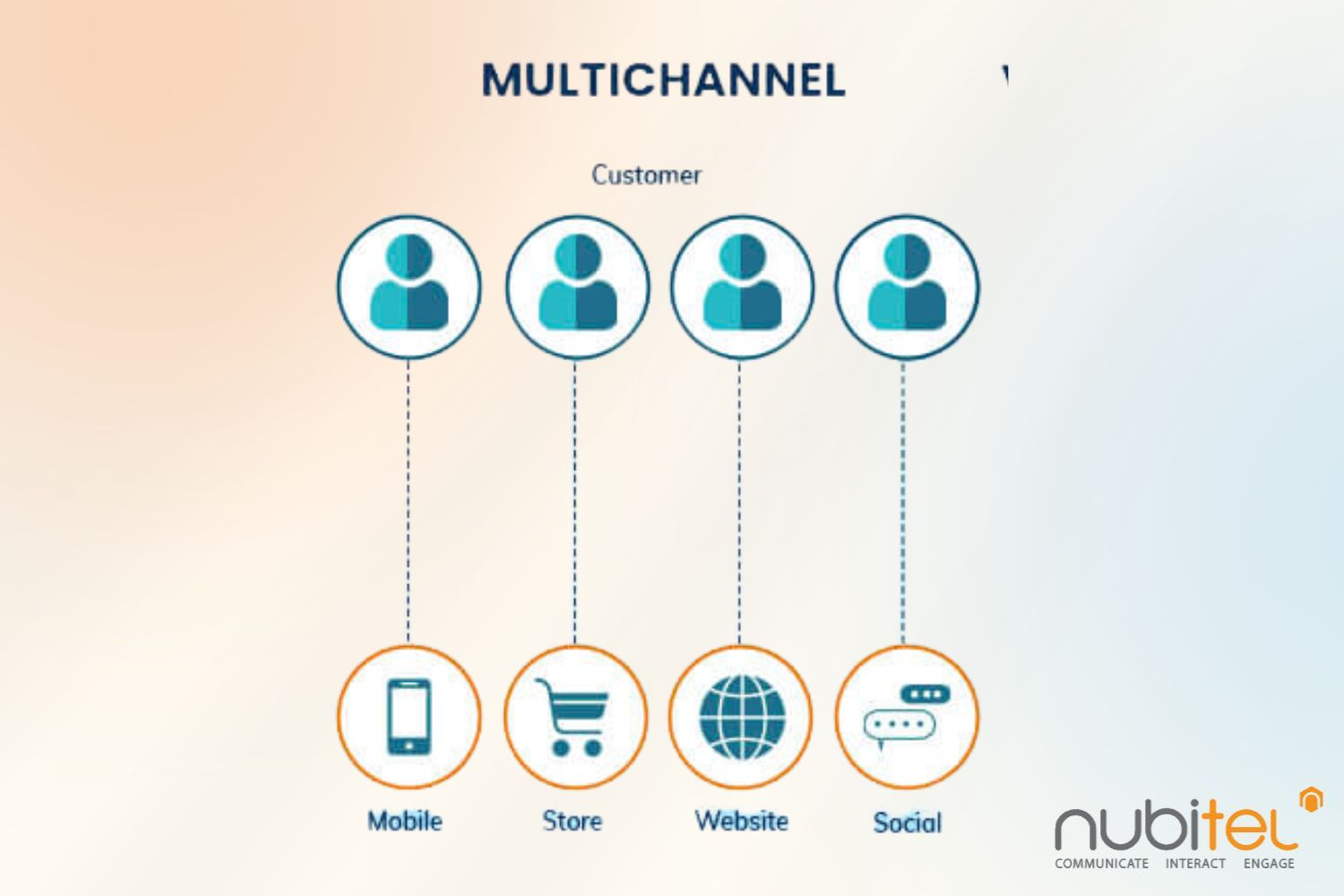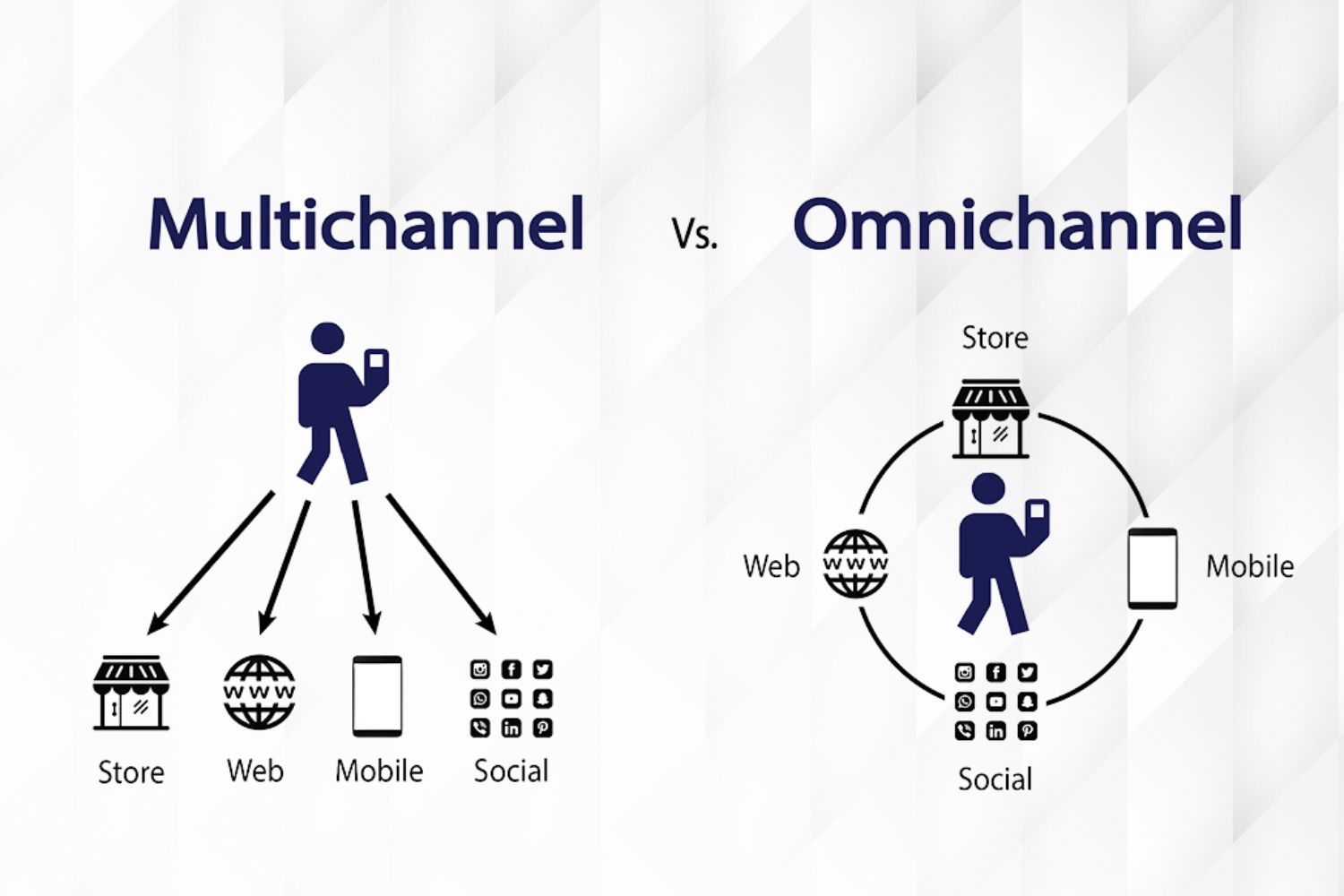In today’s fast-paced digital landscape, businesses are challenged to choose the right strategy for their customer engagement, especially when deciding between an omnichannel vs multichannel contact center. Nearly 80% of customers expect consistent interactions across all departments, yet over half feel like they’re engaging with separate entities rather than a unified company, resulting in fragmented experiences.
Two popular approaches, omnichannel and multichannel contact centers, are often discussed, but they offer distinct differences in how they manage customer interactions. While both aim to improve customer experiences, the key lies in understanding how each strategy integrates various communication channels.
In this article, we will break down the differences between omnichannel and multichannel contact centers, exploring their unique benefits and helping you determine which approach is best suited for your business.
Table of Contents
ToggleWhat Is an Omnichannel Contact Center?

An omnichannel contact center integrates multiple communication channels into a unified platform, enabling businesses to deliver seamless, consistent customer experiences across all touchpoints. This approach empowers agents with a holistic view of customer interactions and preferences, fostering proactive and personalized engagement.
Pros and Cons of Omnichannel Contact Centers
| Pros | Cons |
|---|---|
| Unified customer experience | Higher upfront investment |
| Comprehensive customer data access | Requires advanced technology setup |
| Supports hyper-personalization | Complex implementation process |
| Easy integration of new channels | Requires ongoing optimization |
| Enhances agent productivity | Training needs for agents |
What Is a Multichannel Contact Center?

Multichannel marketing allows businesses to interact with customers across various channels like phone, email, live chat, and social media. Unlike omnichannel, multichannel systems operate these channels independently, which may result in siloed customer data and fragmented experiences.
Pros and Cons of Multichannel Contact Centers
| Pros | Cons |
| Quick and cost-effective setup | Siloed communication channels |
| Flexibility to focus on specific channels | Limited customer data integration |
| Ideal for businesses with fewer touchpoints | Restricted scalability |
| Simple configuration and maintenance | Less capacity for personalization |
Differences Between Omnichannel & Multichannel Contact Centers
Understanding the core differences between omnichannel and multichannel contact centers is essential for selecting the right solution to meet your organization’s needs. Below is a breakdown of key differences between omnichannel & multichannel customer support:
| Feature | Omnichannel | Multichannel |
| Integration | Fully integrated systems across all channels | Channels operate in silos |
| Context | Complete cross-channel customer data | Limited to individual channel data |
| Experience | Seamless and consistent | Can feel disjointed |
| Personalization | Hyper-personalized service | Basic personalization |
| Metrics | 360-degree customer relationship metrics | Channel-specific metrics only |
| Technology | Cloud-based, real-time routing | On-premise or basic call routing |
| Cost | Higher investment, long-term value | Lower initial costs, less future-proof |
| Best For | Customer-centric organizations | Budget-conscious businesses |
Choosing the Right Strategy: Omnichannel or Multichannel
Your choice between omnichannel and multichannel depends on factors like business size, budget, customer preferences, and long-term goals.
-
- Omnichannel: Best for businesses aiming to deliver superior customer experiences through fully integrated systems and advanced personalization. Ideal for industries like hospitality and e-commerce.
-
- Multichannel: Suited for smaller businesses or those focused on specific channels. This approach works well for companies with limited customer touchpoints or basic communication needs.
- Multichannel: Suited for smaller businesses or those focused on specific channels. This approach works well for companies with limited customer touchpoints or basic communication needs.
Why Businesses Choose Omnichannel Contact Centers
- Scalability and Data-Driven Optimization:
Omnichannel systems offer inherent scalability, allowing businesses to adapt their support infrastructure to evolving demands.
Furthermore, these systems generate valuable data insights by tracking customer interactions across all channels. This data-driven approach is a core benefit of omnichannel marketing, enabling informed decision-making and continuous improvement.In the context of omnichannel commerce, these insights facilitate the optimization of product offerings, pricing strategies, and marketing campaigns.
- Operational Efficiency and Agent Empowerment:
An omnichannel CRM provides agents with a comprehensive view of each customer’s interaction history across all channels.
This enhanced efficiency also plays a vital role in omnichannel commerce. By integrating all sales channels (e.g., online platforms, physical stores, marketplaces), businesses can streamline order management, inventory control, and customer service processes, leading to improved operational performance. - Elevating Customer Engagement:
Customers now demand flexibility and personalized interactions. They expect to engage with businesses on their preferred terms, whether through social media interactions, email correspondence, or traditional phone calls.
For example, a customer initiating a query via a social media platform can seamlessly transition to a phone conversation with the same agent, who retains the context of the prior interaction. This integrated approach is a key component of effective omnichannel marketing, fostering deeper customer engagement and personalized communication.
The integration of omnichannel chat within a unified customer data platform further enhances this engagement by providing real-time support and personalized assistance.
Best Practices for Omnichannel Customer Service
To create a seamless and efficient omnichannel experience, businesses must adopt strategies that integrate advanced technology, streamline communication, and ensure consistency. Here are some best practices to enhance your omnichannel customer service operations:
- Implement AI Virtual Agents: Deploy AI-powered virtual agents or chatbots to handle routine inquiries across multiple channels. This will free up human agents to focus on more complex issues, improving efficiency while maintaining high-quality service.
For example, AI can manage frequently asked questions or assist with basic order tracking, allowing agents in both Singapore and Malaysia to focus on high-touch customer interactions that require personalized attention. - Utilize AI for Interaction Analysis: Leverage AI to analyze customer interactions across all channels. By identifying patterns in customer behavior and recurring issues, businesses can proactively address problems and refine their approach to customer service. This data-driven approach helps enhance communication, especially in regions like Singapore and Malaysia, where cultural nuances may affect customer preferences.
- Provide Quick and Efficient Responses: Implement real-time communication tools such as live chat or instant messaging within your omnichannel contact center. Quick responses can improve customer satisfaction by resolving issues faster and preventing frustration.
- Ensure Consistency Across All Channels: To build trust and reliability, maintain a consistent tone and message across all touchpoints. Whether a customer is interacting via email, social media, or chat, their experience should feel cohesive and unified.
How Nubitel Flexible Contact Center Solutions Help
Nubitel’s solutions cater to diverse business needs with customizable multichannel and omnichannel capabilities. From startups to large enterprises, Nubitel offers:
-
- Intelligent call routing based on agent skills.
-
- Customer journey orchestration for seamless experiences.
-
- AI-driven tools like conversation analytics or virtual assistants.
-
- Scalable systems to accommodate business growth.
Choose Nubitel to transform your contact center strategy, ensuring both efficiency and exceptional customer experience.





